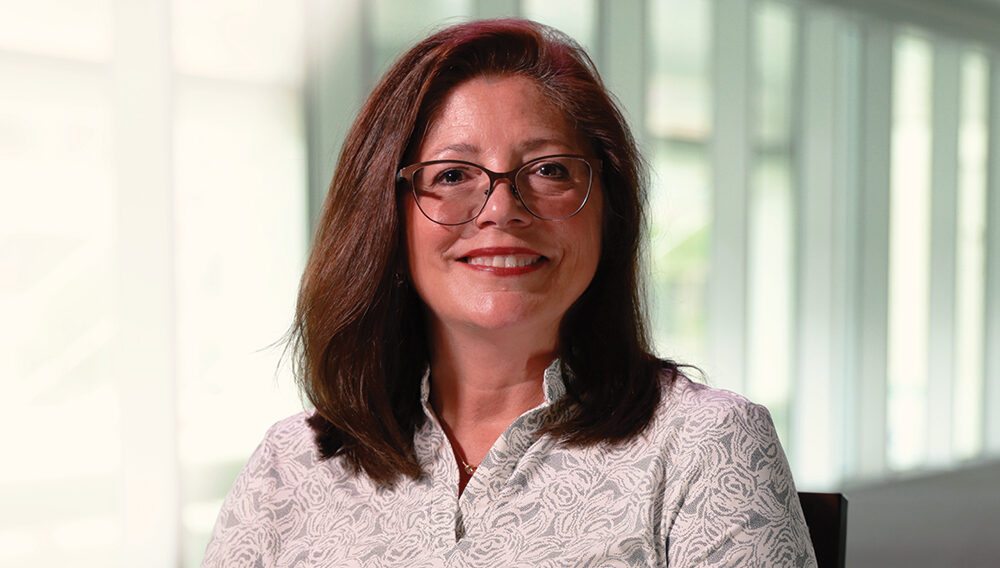Q&A with Nancy Bellucci

About Nancy Bellucci
Nancy Bellucci is a faculty program director with Excelsior University’s graduate nursing program. She has been with Excelsior since July 2021 overseeing faculty and courses in both bachelor’s and master’s nursing programs.
Bellucci earned a PhD in nursing education from Capella University, and master’s and bachelor’s degrees in nursing education from Thomas Edison State College. She holds a certificate in nursing education from Thomas Edison State College and is a certified nurse educator (NLN). Bellucci has held multiple clinical nursing and academic nursing positions since becoming a nurse in 2006. She has taught nursing leadership, health care policy and finance, nursing informatics, evidence-based practice, capstone courses, and professional roles and values
Bellucci has written many articles for the American Nurses Association, NurseTogether, RN Journal, dailynurse.com, and Nurse.com. She has presented original research and other presentations at the National League for Nursing’s Education Summit, the Sigma Theta Tau International Conference on Healthy Work Environments, and the Association of periOperative Registered Nurses (AORN) National Summit.
At Excelsior, Bellucci oversees the nursing informatics, research, and Capstone courses for the bachelor’s in nursing program and the courses in the Master of Science Nursing Informatics program.
We asked Bellucci about her career, nursing Capstone courses, and takeaways for Excelsior students in the bachelor’s and master’s in nursing programs. Check out her answers below.
Q&A with Nancy Bellucci
Q: Can you briefly describe your nursing career?
A: I was a nurse starting in 2006. I came into nursing late in life; I had already had a full career working in an office and in our boat dealership. We sold our business, and a retired nurse mentioned, “Why don’t you be a nurse?” So the journey began there.
Q: What topics or areas of nursing do you have expertise in?
A: I started out in med-surg nursing and then worked my way into the operating room where I scrubbed in and did all kinds of interesting surgeries. From there, I became a clinical development specialist and oversaw eight surgical units with 144 staff members and did all their clinical education. Then I got involved in nursing academics and have been here ever since.
Q: What is your role at Excelsior?
A: I’m a faculty program director. So what that means is I not only help develop our faculty who teach, but also help to do curriculum design, which I’m passionate about. I try to bring that real-world experience into the online setting…I give back to nursing; I get to give my expertise.
Q: What can students expect from the bachelor’s Capstone course you teach?
A: We’ve just redeveloped the Capstone for the bachelor’s program, and we’ve done it in a way that helps students build a quality improvement project. They take a topic that they’re passionate about—something that they think needs to be changed in the clinical setting—and they work through with a mentor who they choose, to develop that plan incrementally over the course of 15 weeks. And then hopefully many of the students that I’m teaching right now have implemented their plan and are starting to see the benefits of their voice in the creation of process and policy change.
Q: What about the master’s in nursing informatics Capstone?
A: Currently I’m recreating the nursing informatics Capstone. It’s very similar to the bachelor’s Capstone in that it’s rigorous—15 weeks. We scaffold the assignments, meaning that the student has to build a systems plan as the project manager and a leader because nursing informatics isn’t just about informatics or health information, it’s about leading a project, working on interprofessional teams, collaborating with one another, and creating lasting change. So just as you see in the bachelor’s Capstone, and all of our master’s Capstones, we are working to help students select a topic and decide how they want to attempt to create the change. So we’re really working to help them build a final product that they can use in the real world.
Q: What do you hope students will take away from the bachelor’s and master’s in nursing programs?
A: We’re in really challenging times in nursing. Nurses are now having to get a bachelor’s degree, and it’s become a requirement of work where they can’t progress in their profession unless they have one…So I hope that they take away from this that it’s not just to have to—it’s yours. I mean you own it. It’s your degree, no one can take it from you, and it still should be that badge of honor. And for the master’s, I hope that you realize that you can create change, you can promote others, you can promote yourself; you can be a benefit to nursing.



